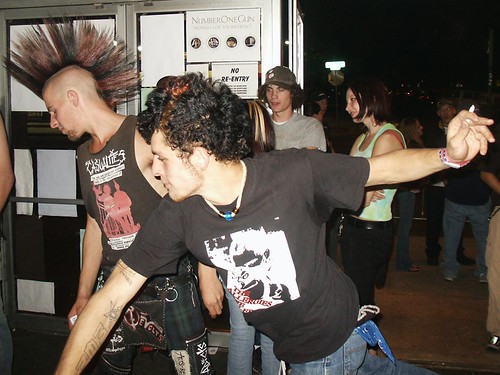Last Updated on June 10, 2011, 9:17 pm ET
A one-sentence entry in an otherwise routine record of trial proceedings on May 26 reveals a significant victory for Georgia State University in its ongoing dispute with three academic publishers. The remaining claim may be too narrow to support the broad, punitive relief the publishers seek, although the judge has wide discretion to choose a remedy.
The smackdown: “Defendants Motion for Directed Verdict, Granted in Part, as to the contributory
infringement claim.”
A “motion for directed verdict” is a way for a party in litigation to get a verdict early based on the evidence already entered at trial. On May 26, after the publishers finished presenting their evidence, GSU moved for a directed verdict on all of the publishers’ claims, and the judge granted the motion as to contributory liability.
And just like that, Judge Orinda Evans threw out the second of the publishers’ three claims. Now indirect infringement is the only remaining claim against GSU.
As you may remember, I predicted the publishers would face an uphill battle to prove contributory infringement. I argued that the court was plainly favorably disposed to GSU’s policies, which the September opinion described as positive steps to stop infringement, so it would be quite difficult to show that GSU was nevertheless guilty of encouraging infringement on campus. The court’s May 26 decision bears out my prediction.
So what’s left?
The remaining claim, which the court had thrown out last September based on a technicality before reinstating it in December, is for “indirect infringement.” The claim is based on respondeat superior, the legal doctrine that an employer is responsible for the offenses of its employees when committed in the scope of employment. If the publishers can show that any professor exceeded the bounds of fair use when they made e-reserves requests, they can pin each violation on GSU. This claim is the hardest one for GSU to avoid because, in theory, the publishers just have to find one infringement by one professor to prove GSU is an ‘indirect infringer.’
What are the likely consequences if GSU loses?
While respondeat superior lowers the barrier for proving GSU is responsible for at least some infringement, the nightmarish, punitive, and bizarrely out-of-date injunction the publishers have requested is only a rational response to large-scale, rampant infringement (if that). Also, given that the 11th Amendment bars judgment against state sovereign institutions unless their violations of law are “continuous and ongoing,” it’s not clear a few stray ereserve requests could support any relief at all. The publishers needed to show that lots of professors were making lots of bad fair use determinations in order to get the relief they seek.
That said, judges have extraordinary power and flexibility. On its face the remaining claim seems hardly worth all the Sturm und Drang the publishers have stirred up, but if the judge does find “continuous and ongoing” infringement, she has wide latitude to order relief.
And, even if the remedy is modest, Judge Evans’ decision is likely to include an analysis of fair use as it applies in the non-profit, library context. Such an analysis would be the first of its kind in any federal court opinion, and will therefore be of great interest to libraries and rights holders alike. While I strenuously disagree with the CopyFUD out there suggesting that only a court case directly on point can give reliable guidance on fair use issues, a case on point is certainly a very useful thing to have in determining what a judge might say about your fair use argument. What Judge Evans says about the legal doctrine could therefore be as important, or more so, as what she orders GSU to do. (And if this article is accurate, Judge Evans may not be feeling generous toward library uses.)
According to an article in Publishers Weekly, the court set two dates in July for post-trial filings, so we could see a final verdict as soon as August.




